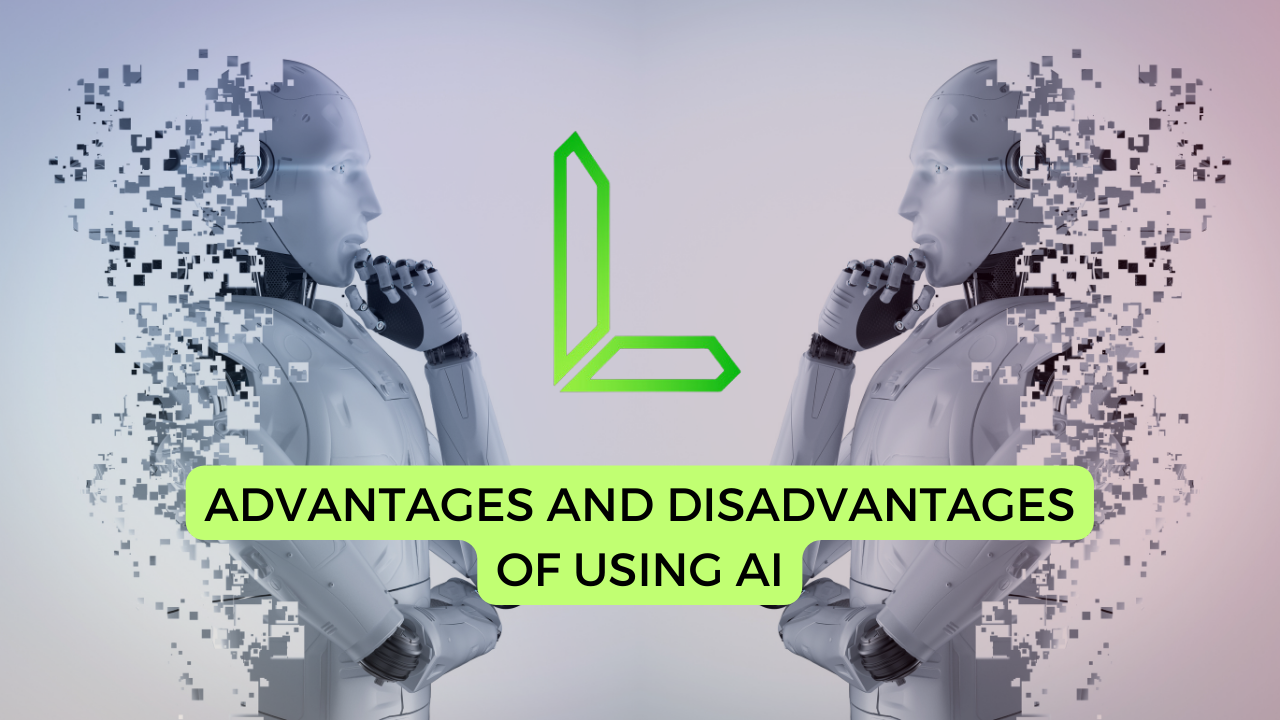
Artificial Intelligence (AI) has rapidly evolved in recent years and is increasingly becoming a significant part of our daily lives. It has the potential to transform almost every aspect of our society. This includes but is not limited to healthcare, transportation, finance, and even education. However, there are also some advantages and disadvantages of using AI. Let’s explore these in detail:
Advantages:
- Efficiency: One of the significant advantages of AI is that it can process vast amounts of data quickly and accurately. This ability to automate repetitive tasks and process data at high speeds is one of the more significant advantages. It can help businesses reduce the time required to complete complex tasks, leading to improved productivity.
- Improved decision-making: AI systems are capable of analyzing vast amounts of data, identifying patterns, and making predictions based on that data. As a result, it can help organizations make more informed decisions by providing insights that are not easily noticeable.
- Cost-effective: AI can reduce the cost of operations and increase the efficiency of processes. It can help organizations save money by automating tasks that would otherwise require human intervention. This reduces the need for manual labor and minimizes the risk of errors.
- Personalization: AI can help businesses personalize their services to customers by providing insights into their preferences and behavior patterns. This can lead to improved customer satisfaction and loyalty.
- Increased safety: AI can be used in applications such as self-driving cars or surveillance systems. Where it can help improve safety and reduce the risk of accidents. It can also be used in medical applications to help doctors diagnose and treat patients more accurately.
Disadvantages
- Job loss: One of the significant concerns associated with AI is the potential loss of jobs. AI systems can automate many tasks that are currently performed by humans. This can lead to job displacement and unemployment. Further, this can have a significant impact on society, particularly for low-skilled workers.
- Bias: AI systems are only as unbiased as the data they are trained on. If the data is biased, the AI system will be biased as well, leading to unfair decisions. This can have significant implications for areas such as employment, lending, and criminal justice.
- Lack of creativity: AI systems are excellent at processing data and making predictions based on that data, but they lack creativity and intuition. This can be a disadvantage in areas where creativity and intuition are essential, such as art, music, or writing.
- Over-reliance: The over-reliance on AI systems can be a disadvantage, as it can lead to a lack of human oversight and accountability. If something goes wrong, it may be challenging to identify the source of the problem and correct it.
- Security concerns: AI systems can be vulnerable to cyber attacks, leading to data breaches and other security concerns. As AI systems become more prevalent in our daily lives, the risk of these attacks increases. It is essential to take steps to ensure that they are secure.
Therefore, there are several advantages and disadvantages of using AI. While it has the potential to transform many aspects of our lives. It is essential to be aware of the potential downsides and take steps to mitigate them. It is crucial to strike a balance between the benefits and risks associated and ensure that it is used to improve our lives without causing harm.
It is essential to review the need for it before making critical decisions that may impact elements within an organization that requires human oversight and implementation. There is a difference between automation and AI which are relevant when deciding which way to go.
